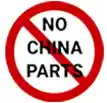Posted on September 25, 2024 dannie lopez Aviation
Programmable logic controllers (PLCs) are popular items that have become a critical element of modern industrial automation systems. These devices are used to control machinery in industries like manufacturing, food processing, automotive, and many others. Understanding how PLC automation systems work provides valuable insights into their functionality, structure, and applications, so read on as we supply a basic overview.
Put simply, a PLC is a specialized computer designed to execute a set of instructions, known as a program, in order to interface with devices like sensors, actuators, and motors with minimal delay. Its typical components include a central processing unit, input and output modules, a power supply, and a programming device. Together, these elements form the backbone of a PLC automation system, enabling seamless interaction between a control program and mechanical processes.
In action, a PLC can receive input signals from various sensors and switches in an automated system to secure real-time data about the operational conditions of the machines being controlled. For example, sensors can detect parameters like temperature, pressure, or the position of an object. The PLC then processes this information and uses it to make timely decisions in response to certain conditions, such as turning on a motor, adjusting a valve, or activating a safety alarm.
Unlike receiving input signals, output signals are commands that a PLC sends to external devices it controls, such as pumps and lights. For instance, if it detects that a machine has reached a certain temperature, it might activate a fan or shut down the equipment to prevent overheating. Similarly, if a conveyor belt needs to be stopped when an object reaches a specific point, a PLC will issue the necessary command to it. Additionally, outputs can be either digital, where a signal is simply turned on or off, or analog, where a signal varies over a range of values.
One of the key advantages of using PLCs in automation is their ability to operate in harsh industrial settings with significant dust, moisture, and vibration. PLCs are designed to withstand these conditions, as they are housed in durable enclosures that protect interior electronics from physical damage and environmental factors. Additionally, PLCs are known for their modularity, meaning they can be easily expanded with additional input/output modules or upgraded as the needs of a system evolve.
Another important feature of PLC automation systems is that they enable operators to monitor the status of a system and make real-time adjustments from a remote location. This ability reduces downtime and allows for proactive maintenance, as potential issues can be identified and addressed before they cause major disruptions. Additionally, data collected by a PLC can be used for long-term performance analysis, helping companies optimize their processes and improve overall efficiency.
While PLCs are primarily known for their role in controlling individual machines or processes, they are occasionally networked together to manage different sections of complex industrial infrastructure. These networks allow PLCs to communicate with one another, sharing information and coordinating actions to ensure smooth operation of an entire system. This scalability makes PLCs a versatile automation solution for both small-scale manufacturing and large, multi-facility operations.
In conclusion, PLC automation systems are vital in controlling and monitoring industrial processes. If you require dependable PLC components for your operations, look no further than Buy Automation Products, as we have a myriad of popular items available for purchase today. We invite you to browse our vast offerings as you see fit, and be sure to request quotes on any products of interest you come across with our online RFQ forms. Once we receive and review your submission, an affordable quote will be provided in 15 minutes or less. With our staff members accessible around the clock to assist you, we would be happy to serve as your strategic sourcing partner for all your operational needs.
 The only independent
The only independent

“We Proudly Support Intrepid Fallen Heroes Fund that serves United States Military Personal experiencing the Invisible Wounds of War : Traumatic Brain Injury (TBI) and Post Traumatic Stress (PTS). Please visit website (www.fallenheroesfund.org) and help in their valiant effort”.
We hope that you will visit us again the next time you need industrial parts and make us your strategic purchasing partner.
Request for Quote